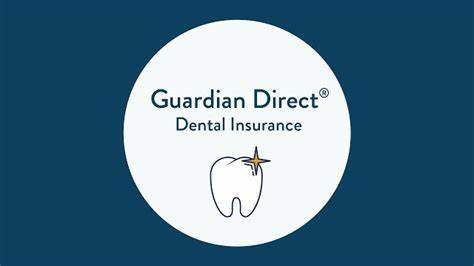Dental implants have become a popular and effective solution for replacing missing teeth, offering a long-lasting option that closely mimics natural teeth in both appearance and function. However, the cost of dental implants can be substantial, often leaving patients wondering if their dental insurance will cover the procedure. In this comprehensive guide, we explore the intricacies of dental insurance coverage for implants, discuss factors to consider when choosing the best dental insurance plan, and review some of the top dental insurance providers that offer coverage for dental implants.
Dental Insurance And Coverage for Implants
Dental insurance coverage for implants varies significantly among providers and plans. Traditionally, many dental insurance plans have not covered dental implants because they are considered a cosmetic procedure or elective surgery rather than a medically necessary treatment. However, as dental implants have become more mainstream and recognized for their health benefits, some insurance plans now offer at least partial coverage for implants, particularly for cases where implants are deemed necessary for functional reasons.
When considering dental insurance coverage for implants, it’s essential to understand the following key points:
Coverage Limitations: Most dental insurance plans that cover implants do so up to a certain limit. This limit can vary widely depending on the plan and may cover a percentage of the total cost of the implant procedure.
Pre-authorization Requirements: Some insurance plans require pre-authorization or pre-approval before undergoing implant surgery. This process involves submitting documentation from the dentist or oral surgeon outlining the necessity of the procedure.
SEE ALSO: What Is The Best Health Dental Insurance?
Waiting Periods: Dental insurance plans often have waiting periods before coverage for major procedures like implants kicks in. It’s crucial to be aware of these waiting periods to avoid unexpected out-of-pocket expenses.
Exclusions and Exceptions: Certain exclusions may apply, such as coverage limitations for implants placed for purely cosmetic reasons or for implants used in conjunction with other dental procedures.
Factors to Consider When Choosing Dental Insurance That Covers Implants
Choosing the best dental insurance plan that covers implants requires careful consideration of several factors. Here are some important aspects to evaluate:
Coverage Details: Review the specific coverage details for dental implants, including the percentage of coverage, annual or lifetime maximums, and any exclusions or limitations.
Premium Costs: Compare the monthly or annual premium costs of different insurance plans. Plans with higher premiums may offer more comprehensive coverage or lower out-of-pocket expenses for implants.
Network Providers: Check if the insurance plan has a network of dentists and oral surgeons who perform implant procedures. Using in-network providers can often result in lower costs for covered services.
Policy on Pre-existing Conditions: Understand the plan’s policy regarding pre-existing conditions related to dental implants. Some plans may have waiting periods or exclusions for pre-existing conditions.
Customer Reviews and Reputation: Research the insurance company’s reputation for customer service, claims processing, and overall satisfaction among policyholders.
Additional Benefits: Consider other benefits offered by the insurance plan, such as coverage for routine dental care, preventive services, and emergency treatments.
Top Dental Insurance Providers That Cover Implants
While many dental insurance providers offer some level of coverage for implants, several stand out for their comprehensive coverage options and customer satisfaction ratings. Here are some of the top dental insurance providers known for covering dental implants:
1. Delta Dental
Delta Dental is one of the largest dental insurance providers in the United States, known for its extensive network of dentists and comprehensive coverage options. Delta Dental offers various plans that may include coverage for dental implants, depending on the specific plan and state regulations. Policyholders can typically choose between Delta Dental PPO and Delta Dental Premier plans, each with different levels of coverage and cost-sharing options for implants.
2. Cigna Dental Insurance
Cigna Dental Insurance provides flexible dental plans with options for coverage of major services, including dental implants. Cigna’s dental plans may cover a percentage of the cost of implants, with varying levels of coverage depending on the plan selected. Cigna is known for its network of dental providers and comprehensive customer support.
3. MetLife Dental Insurance
MetLife Dental Insurance offers a range of dental plans that may include coverage for dental implants. MetLife’s plans often cover a percentage of the implant procedure cost, subject to plan-specific limitations and exclusions. MetLife is recognized for its strong customer service and nationwide network of dental providers.
4. Guardian Dental Insurance
Guardian Dental Insurance provides dental plans with options for coverage of major dental services, including implants.
Guardian’s plans may cover a portion of the cost of implants, with specific coverage details outlined in each plan’s benefits summary. Guardian is praised for its competitive premiums and extensive provider network.
5. Aetna Dental Insurance
Aetna Dental Insurance offers diverse dental plans that may include coverage for dental implants. Aetna’s plans typically cover a percentage of the implant cost, with varying levels of coverage and cost-sharing options depending on the plan selected. Aetna is known for its comprehensive coverage options and strong provider network.
Conclusion
Choosing the best dental insurance that covers implants involves researching and comparing various insurance plans based on coverage details, costs, provider networks, and customer satisfaction. While coverage for dental implants may vary among insurance providers and plans, understanding the specifics of each plan can help individuals make informed decisions about their dental care needs. By selecting a dental insurance plan that aligns with personal preferences and budgetary considerations, individuals can effectively manage costs associated with dental implants and ensure access to quality dental care.

